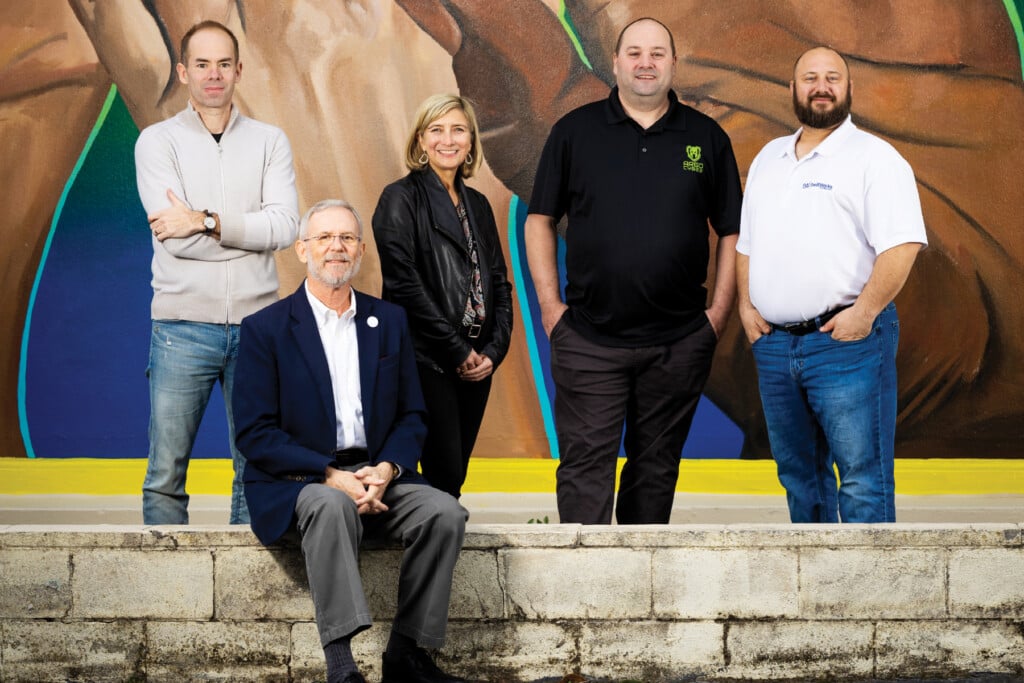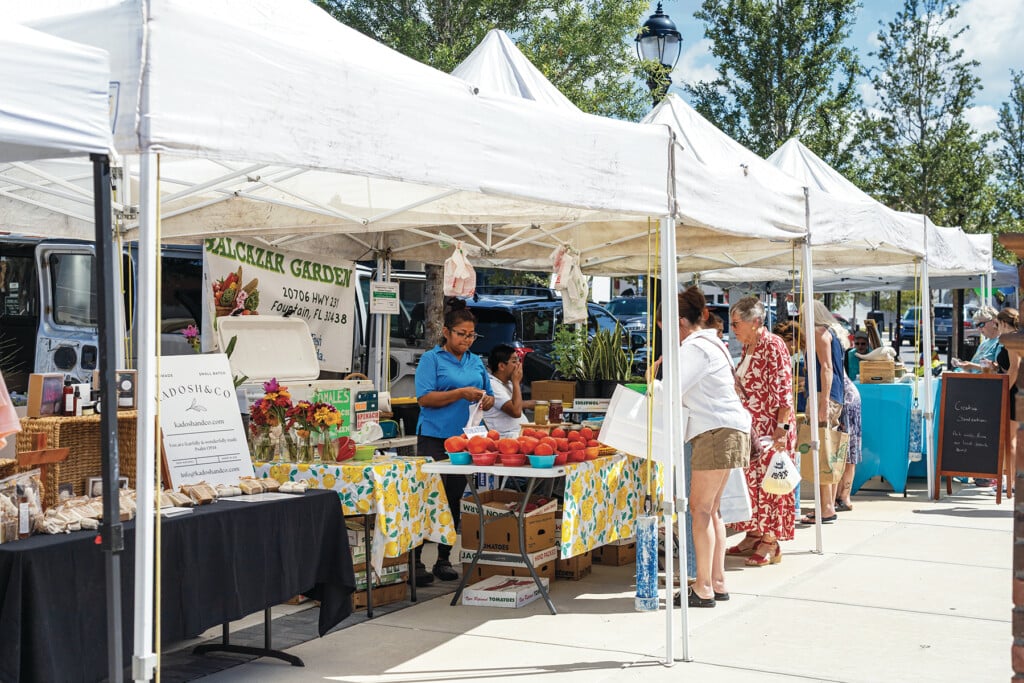Co:Lab Pensacola
A launchpad for startups in Northwest Florida

It’s a dream for many: Come up with an idea in this internet-driven world, and launch a business that will lead them to success and financial freedom.
But for 80 percent of those dreamers, reality turns that dream into a nightmare. That’s the percentage of start-ups that Patrick Rooney says usually fail within the first five years. But at a program in Pensacola, the percentage of successful start-ups is doing much better and far outpacing the norm, according to Rooney.
Rooney is the director of entrepreneurial development at Co:Lab Pensacola, a growth accelerator and business incubator created with a partnership between the Florida West Economic Development Alliance and Pensacola State College.
Co:Lab is currently home to 22 start-ups, which equates to about 70 percent occupancy. Two more are scheduled to start very soon. “We’re getting close to our goal, which is 80 percent,” Rooney said. In their 17th year, Rooney estimates between 80 and 100 businesses have started there. But he doesn’t want to take all the credit for the success stories.
“I am very grateful that we played some part in it,” he says. “I don’t blow the trumpet and say it’s all because of what we do, but we do contribute.”
Besides cheaper rent, one of the big benefits of starting your business at Co:Lab is what Rooney calls the “water cooler concept” where start-ups come in regular contact with each other daily and can share successes, contacts, and even resources.
“It’s just a fun environment,” says Holly Benson. “There are other smart people working here, people doing similar things.” Benson, 53, a former Florida State Senator, has two businesses she started at Co:Lab after moving them from her home in Pensacola. Screen Corps is a background screening business, and StatCheck is a service that prescreens licensed health-care professionals and serves them up on a job board to make the hiring process faster for employers.
“We love being here,” Benson says. She especially welcomes the camaraderie. “On those days when it’s going really well, you have people to celebrate with. And on the days when you run into stumbling blocks, you have people to commiserate with,” she says with a laugh.
According to Benson, another big benefit at Co:Lab is Rooney himself. “It’s great to be with other entrepreneur founders,” she adds. “And Pat Rooney is an incredible gift.” Benson says any time she needs to find somebody with a particular skill set, somehow Pat knows how to find those people. Benson has two full-time employees, and it was Rooney who led her to both of them.
Scott Harvey is the chief revenue officer for SwiftWorks Technology, a startup entering its second year at Co:Lab. Harvey started the business with partners out of a shed in Pensacola. “We installed Sheetrock in the shed and put our servers in there,” he says with a smile. When they outgrew the shed after one year, they moved into Co:Lab.
SwiftWorks bills itself as a professional services firm specializing in network engineering, data center architecture, and business consulting. They currently have six full-time employees and big dreams.
“We have some pretty hefty goals, and we’re not small-minded,” Harvey says, explaining their plans as a managed service provider for large enterprises. He, too, appreciates the community aspect at Co:Lab—especially the Taco Thursday events. Rooney and Co:Lab sponsor a weekly taco lunch for the building.
“We get to go around the room and talk about different items,” he says, “whether it’s a win or a challenge we are having, and everybody’s kind of openly discussing it.” Rooney also regularly brings in specialists to talk about different areas of business, which Harvey says adds to the value of Co:Lab as well.
“And with the Chamber of Commerce being on the fourth floor, we have easy access to a bunch of other resources in the building as well,” Harvey adds.
“I can tell you, for businesses that qualify, I can’t see a better way to start out if the space fits,” Harvey notes. “The program gives you every bit of the ability to succeed and all the tools you need.”
If five years is the measure of success, then Jim Rogers and ARGO Cyber Systems are at the finish line. Rogers is CEO of the company, which he started by himself in 2018, moving into Co:Lab a year later.
His company has grown from Rogers being the only employee to now employing 43 people. They specialize in security operations and security assessment, working with both commercial and government entities. Rogers says they do a lot of security operations with 24/7 monitoring and assessment for cyber threats.
Rogers reiterates his appreciation for the community at Co:Lab. He is currently working with Holly Benson and her SwiftWorks company on a project.
In his fifth year in the building, Rogers and his company are set to “graduate” as Co:Lab calls it. When companies complete five years in the program, they transition out into the commercial world.
Rogers has started looking beyond Co:Lab and figures he will need upwards of 5,000 square feet of space, and he knows it will be expensive. “We have to build a big operational center, but I am going to do a test lab here first.” He is also eyeing new hires in the future.
Like many others, Rogers sings the praises of Co:Lab and especially Rooney for the big part they have played in getting his dream of starting his own business into reality.
“I do give talks from time to time to young entrepreneurs starting out, and I tell them it’s not easy,” he says. “It takes a very thick skin, working through struggles with finance, barriers of entry, making relationships with new clients, and maybe showcasing something new to them in a different way.”
Rogers says he has benefitted from a host of mentors from the Co:Lab facility just by being around it for five years. Many of his mentors have also “graduated” and moved on.
Rogers is quick to sum up his experience at Co:Lab as something special and unique—a reason they have been successful.
“I mean, look at us, year five,” Rogers says, “and we are still here and looking at moving into a bigger space.”

